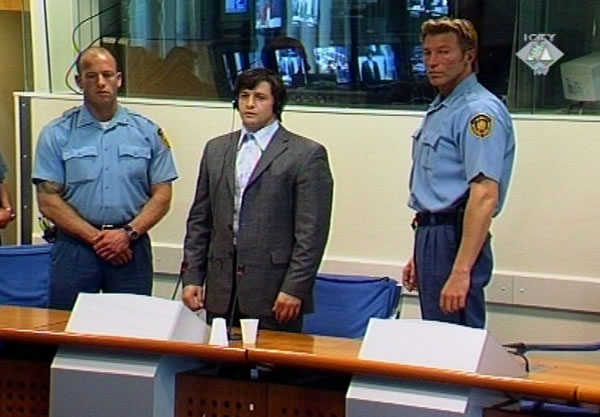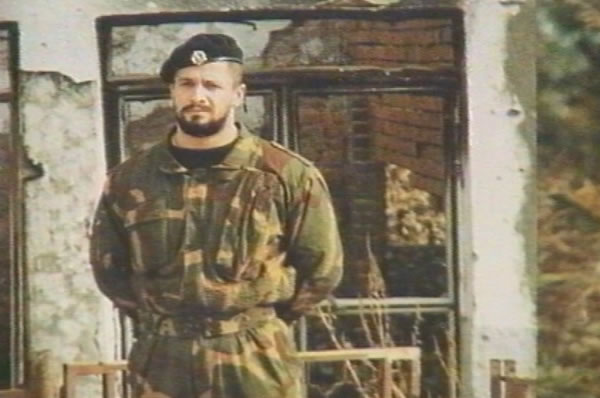Home
NASER ORIC'S DEFENCE
In its pre-trial brief, Naser Oric's defence submits that this is "the first time in history that a representative of a people under siege and facing genocide has been indicted by an international tribunal for crimes allegedly committed against the besieging foe.”
 Naser Oric in the courtroom
Naser Oric in the courtroom The defence of Naser Oric has filed its pre-trial brief outlining its strategy at the impending trial. The trial date has not been set yet. The brief submits that the accusations levied against the former commander of Bosniak forces in the Srebrenica area are imprecise and that, in order to understand the actions of the accused, one must take into account the "catastrophic situation" in which Bosniaks lived in the enclave from 1992 until its fall in July 1995.
The indictment alleges that Oric was the de iure and de facto commander of all Bosniak units in the municipalities of Srebrenica and Bratunac and consequently charges him with the attacks on Rupovo Brdo, Ratkovci, Jezestica, Fakovici, Bjelovac and Kravica in 1992 and in early 1993 and with the detention and abuse of several Serbs in Srebrenica, some of whom were beaten to death. The prosecutor alleges that in the period relevant for the indictment thousands of Serbs left the area because of attacks on their villages and hamlets.
Oric's lawyers Vasvija Vidovic and John Jones consider the charges imprecise, i.e., that the prosecutor "in many cases does not know when the alleged crimes happened" or "which individuals perpetrated the alleged unlawful acts.”
The general line of defence is that "on the assumption that the alleged acts were even committed, to which the prosecution is put to strict proof, and that if committed the conduct was not justified by necessity… then Mr. Oric denies that he exercised effective de facto control over the perpetrators.”
The defence describes the attacks on the villages listed in the indictment as "defensive actions" and desperate attempts to obtain food for the population under siege. Oric did not know that any crimes had been committed in the course of the attacks, nor did he know that soldiers subordinate to him had committed any prohibited acts, claims the defence. The defence also challenges the allegation that the accused knew about the abuse of the Serbs detained in Srebrenica or that he had any authority over those who beat and tortured prisoners.
The defence deems that the prosecutor had to – and deliberately failed – to explain in the background of the indictment that the Bosniaks in the Srebrenica enclave lived under siege from 1992 on, starving and victims of a "slow-motion genocide". "The Trial Chamber, in order to do justice in this case, must at all times bear in mind this appalling reality", the brief concludes. “This is the first time in history that a representative of a people under siege and facing genocide has been indicted by an international tribunal for crimes allegedly committed against the besieging foe.”
Photos

